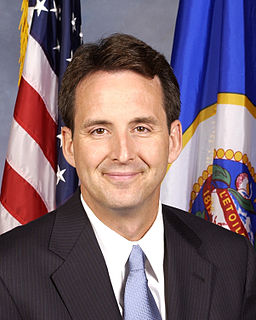A Quote by Lynn Whitfield
I think water seeks its own level, that we go through challenges to become better. And now more than ever, it's good to look at who you're following in any type of hierarchy or institution - be it a church or the government. We can see how easy it is for people to lose their footing when they have great power.
Related Quotes
When people get in your face and say, 'This will pass,' you think, Are they crazy? I'm never gonna feel any better than I feel right this minute and nothing's ever gonna make sense again... You see a lot of people play this blame game. Blame, blame, blame. You know? And it's a really easy thing to do, and I'm certainly guilty of it. [You have to] look at yourself and go, 'What part of this do I need to own? Which part of this is my responsibility?' And that's the painful work that you have to go through to hopefully get some real life knowledge out of it.
It's not that you have jobs on the Internet, but the Internet makes it possible for more people to build their own jobs. What it does is, it erodes the power of institutions. It used to be you needed an institution to have a job. But, if you look at the three of us on this show, I don't think any of us is really employed by an institution. We run our own lives.
In a world in which we are exposed to more information, more options, more philosophies, more perspectives than ever before, in which we must choose the values by which we will live (rather than unquestioningly follow some tradition for no better reason than that our own parents did), we need to be willing to stand on our own judgment and trust our own intelligence-to look at the world through our own eyes-to chart our course and think through how to achieve the future we want, to commit ourselves to continuous questioning and learning-to be, in a word, self-responsible.
As the magistrate has no power to impose by his laws the use of any rites and ceremonies in any church, so neither has he any power to forbid the use of such rites and ceremonies as are already received, approved, and practised by any church; because if he did so, he would destroy the church itself; the end of whose institution is only to worship God with freedom, after its own manner.
I think if you look at Medicare and Medicaid, the premise was that government needs to provide some assistance to people who aren't able to take care of themselves. I think we all share that goal, Republicans and Democrats. I don't think anybody's gonna go back now and say, Let's abolish, or reduce, Medicare and Medicaid. But as we confront the challenges and the responsibilities of our time - from here on - how do we serve more people or different people who are in need of financial assistance? Just forever having the government expand to address all of that seems unwise.
When you travel you realize how small you are. You need to be humble. You can't be a big, brash American. You think you have problems. You leave the States and you see people have bigger problems than you, much worse problems than you. They have nothing to eat, they have no water, they have no shelter, they have a terrible government. So you realize we complain about the government, we complain about food, whatever it is, and go somewhere else and you think, "Now I realize," you say, "Why people want to come to America."
The church is like any large corporation in one respect. In its early days, either the early church or the early years of Microsoft, you see all kinds of creativity, innovation, invention, people have nothing to lose, they're trying to find what works. Then you wake up and you're a vast enterprise, and it's very hard, when you have all kinds of buildings and structures and hierarchy and so on, to hang on to these very creative impulses that helped you get your great success in the first place. As a church we're going to have to figure a way out from under this.
Through Hinduism, I feel a better person. I just get happier and happier. I now feel that I am unlimited, and I am more in control of my own physical body. The thing is, you go to an ordinary church and it's a nice feeling. They tell you all about God, but they don't show you how the way. They don't show you how to become Christ-concious yourself. Hinduism, however, is different.
I have a great editor and I enjoy, in a masochistic way, being ruthless about my own performance. How do I know, but I think I'm quite good at saying, "That's no good. That's no good. That's it. That's it. That's good." And I'm with the editor who goes, "No, I think you're wrong. That's not your best." There's an initial point in the editing, if you're directing yourself, especially in my case, where you go, "Ouch, ouch, ouch, I can't watch this." And then, there's a point where you become hard-nosed and just take your neurosis away and go, "What's working? That's okay. That's okay. We can lose that, and lose that." You get objective about it.
By government giveaway programs, individuals are often hurt far more than they are helped. The recipients of these programs become dependent on the government and their dignity is destroyed. Is it compassionate to enslave more and more people by making them a part of the government dependency cycle? I think compassion should be measured by how many people no longer need it. Helping people to become self-sufficient is much more compassionate than drugging them with the narcotic of welfare.
In any socialist government, they must destroy all alliances other than your alliance to the government, and they want the government to become your God. That for you to totally depend upon government. So we become slaves to government, through taxation, through regulation, through all kinds of restrictions, that makes us not free anymore.
Now we're in a very different economy. Throughout the late 1980s and 1990s American management started to do the right things. There was extraordinary investment in technology. The dominant questions now are less how to do it better, how to manage better, how to make the economy better, than how to have fuller and more meaningful lives. Because the irony is, now that we've come through this great transition, even though our organizations and our people are extraordinarily productive, many feel that the nonwork side of life is very thin.




































